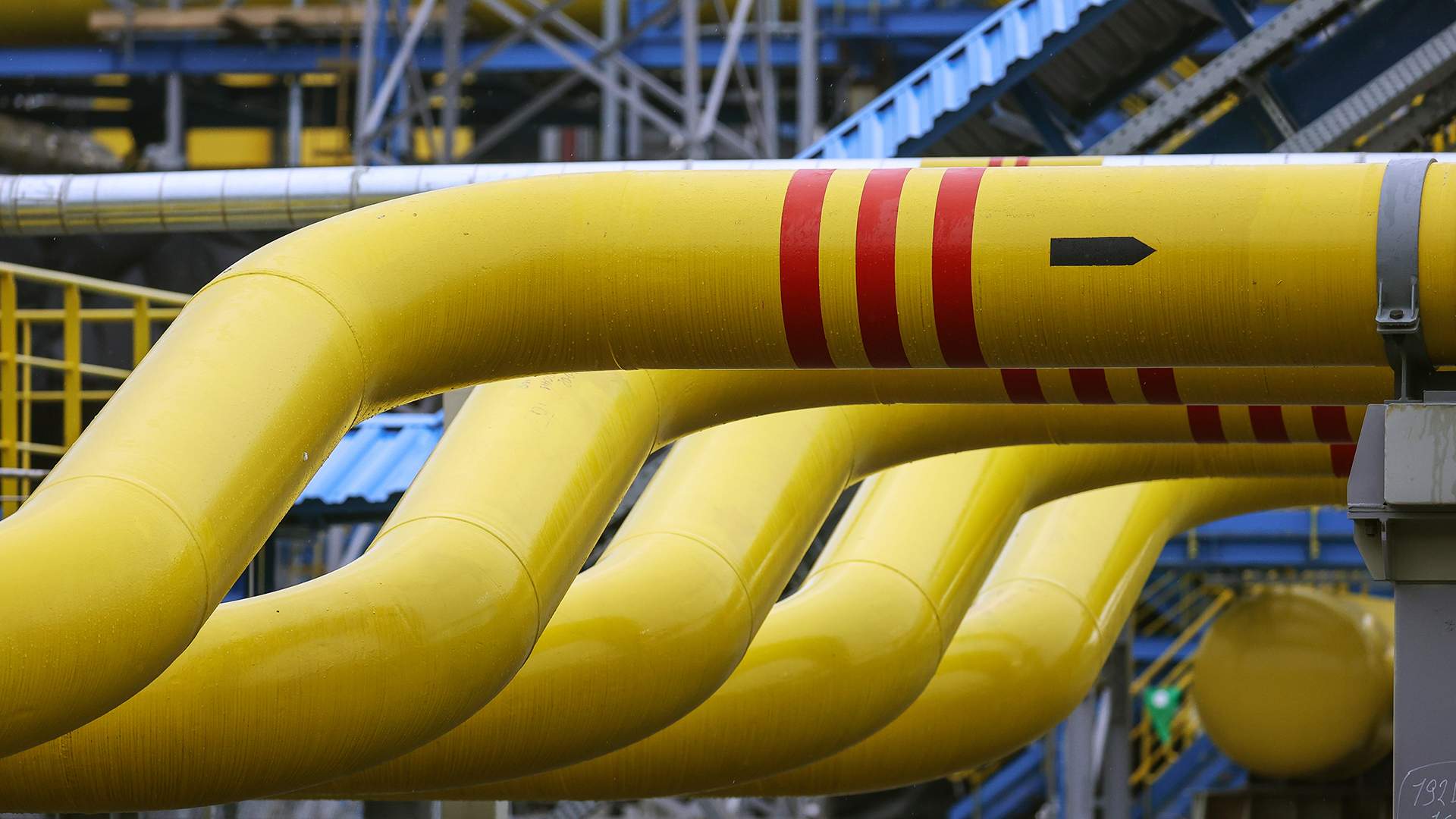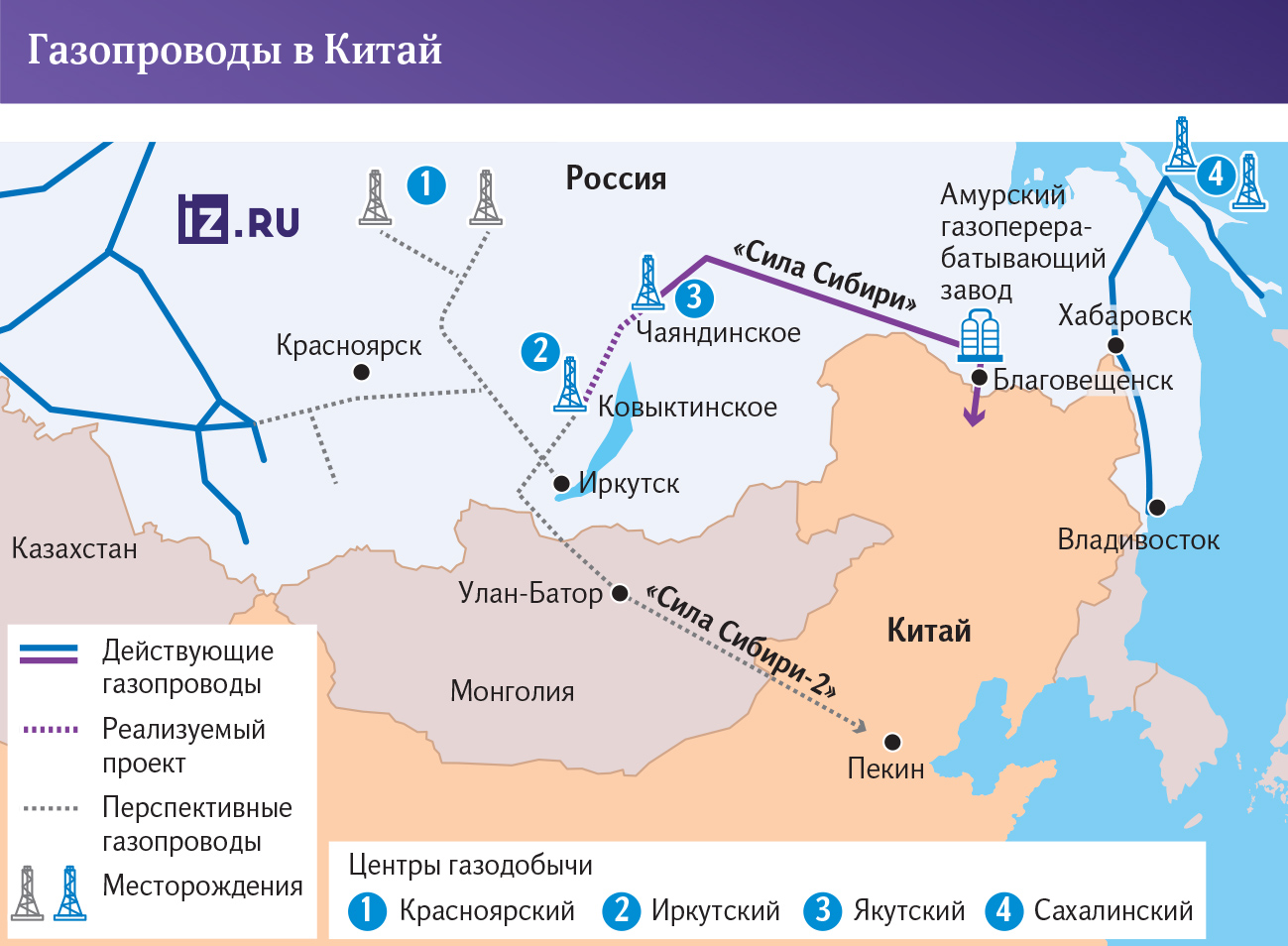Build into cubes: the Power of Siberia – 2 project may be revived in the near future

The US-China trade standoff is gaining momentum. Beijing not only introduced a symmetrical response to Donald Trump's duties of 34%, but also stopped buying American liquefied natural gas (LNG). Moreover, due to high tariffs, China began to resell it on the world market. And this is at a time when the EU has agreed to increase the purchase of American LNG in exchange for easing duties. Experts believe that the current situation may be a good moment to step up the work of Russia and China on the Power of Siberia–2 project. According to the Chinese Embassy, a high-level Chinese delegation is expected at SPIEF 2025. When the countries can reach an agreement on the gas pipeline — in the Izvestia article.
The Power of Siberia–2 Project
China has stopped purchasing American liquefied natural gas (LNG) amid the introduction of "reciprocal" duties. According to Kpler, an analytical company that tracks information about ships, currently no American shipments are sent to China. During the first round of President Donald Trump's trade war, China did not accept shipments from the United States for about 400 days, until April 2020. In addition, China has begun to resell American raw materials, as Beijing's additional tariffs make sales to China unprofitable.
According to experts, maintaining stable strategic cooperation with Russia is one of the most important ways to mitigate the risks of a potential trade war between the United States and China.
— Tensions between China and the United States over tariff increases seem to be escalating. The overbearing and rude tactics of the United States leave China no choice but to react harshly. In addition, Beijing is striving to provide a more favorable environment for foreign economic policy, as shown by a recent conversation between Premier Li Qiang and EC President Ursula von der Leyen. Maintaining stable strategic cooperation with Russia is one of the most important ways to mitigate the risks of a potential trade war between the United States and China," Yang Cheng, professor at Shanghai University of International Studies, told Izvestia.
In his opinion, in this context, the resumption of Russian-Chinese cooperation on the Power of Siberia–2 gas pipeline is a viable option.
— In the long term, such a partnership will provide increased stability for the sustainable economic development of both China and Russia. However, the construction of the pipeline raises complex issues such as determining the route, pricing mechanisms and unstable market demand, which requires deeper discussions between both sides," the source added.
Alexey Grivach, Deputy Director General for Gas Issues at the National Energy Security Fund, agrees with him.
— Theoretically, this is a good moment for China to demonstrate the independence of its energy policy and step up work on the Power of Siberia–2. But I'm not sure they're ready to further escalate relations with the United States right now," he said.
However, the Chinese authorities do not intend to tolerate the increasing pressure from the United States as a result of the protectionist policy of American President Donald Trump, who is "going to blackmail." This was announced by the Ministry of Commerce of the People's Republic of China. As specified, if Washington "insists on its own," Beijing will be forced to counteract this "to the very end."
Vyacheslav Mishchenko, head of the Center for Analysis of Strategy and Technology for the Development of the Fuel and Energy Complex, believes that if Trump and Jinping do not agree, China will be ready to return to the Russian supply option and "actively discuss them."
"Due to threats and trade wars, of course, it would be preferable for Chinese negotiators to resume or accelerate negotiations on the Power of Siberia—2, but so far no hints or insider information have been provided," the expert added.
Meanwhile, it is worth recalling that Chinese President Xi Jinping will come to Moscow not only to celebrate May 9, but also pay a full-fledged state visit. Gazprom declined to comment on the negotiations with the Chinese side. The state-owned Chinese company CNPC did not respond to a request from Izvestia.
— Also, the issue of participation in the SPIEF is currently being worked out. There will be a high-ranking official, but it is not yet known who will lead the delegation. We attach great importance to this forum, so there will be a solid delegation from the Chinese side. A large delegation is also expected on May 9th. There will be several high—level escorts, official officials," Zhang Wei, Minister Plenipotentiary of the Chinese Embassy in Russia, told Izvestia.
Cui Heng, a lecturer at the SCO Center for International Legal Training and Cooperation at the Shanghai University of Political Science and Law, believes that an agreement on this project will be reached at the China–Central Asia and SCO summits this year.
"Negotiations on natural gas prices may require both sides to make compromises," the expert added.
Currently, pipeline gas is supplied to China via the Power of Siberia gas pipeline. This is a joint project of Gazprom and CNPC, which was launched in December 2019. The gas comes from the fields of Eastern Siberia and Yakutia. Its export capacity is 38 billion cubic meters per year. In 2024, shipments totaled 31 billion cubic meters. The pipeline is scheduled to reach full capacity in 2025.
The Power of Siberia–2 project is supposed to connect the gas fields of Yamal and Western Siberia with China through Mongolian territory. In April 2025, Mongolia agreed on a route through its territory. The project capacity of the pipeline is 50 billion cubic meters of gas per year. The implementation of the Power of Siberia–2 gas pipeline faces a number of obstacles. The main reason is the lack of a final contract between Gazprom and the China National Petroleum Corporation (CNPC). Negotiations, which began back in 2020, are being delayed due to disagreements over the price of gas. China insists on a price close to subsidized domestic tariffs in Russia, while Gazprom is targeting higher export rates.
The trade standoff between the United States and China
China, following the administration of Donald Trump, the Ministry of Finance has been imposing duties of 34% on imports of all American goods since April 10. World experts called the Chinese response a serious escalation of the global trade war.
Nevertheless, in response to Beijing's tariffs, the US president threatened China with 50% duties on top of those already announced if Beijing did not abandon retaliatory measures by April 8, which China, of course, did not do. Trump's latest announcement will impose a 34% "reciprocal" duty, as well as a 20% increase implemented earlier this year. This brings the combined tariff rate to 104%, effectively doubling the import price of any goods shipped from China to the United States.
"Chinese LNG importers are likely to move from the idea of 'we should try to resell American LNG to Europe' to the idea of 'we should resell all American LNG' due to the significant difference in tariffs that need to be paid," ICIS analyst Alex Siow said, according to Reuters.
According to Chinese customs, the United States accounted for about 5% of Chinese LNG imports in 2024.
Meanwhile, Europe has decided to increase its purchases of American gas in exchange for easing Trump's tariffs. This was stated by the representative of the European Commission Anna-Kaisa Itkonen.
"Half of our LNG is already coming from the United States, but we are ready to continue negotiations to increase imports," she told reporters in Brussels.
According to her, the EU is seeking to abandon Russian energy resources, and the United States is "an important partner in diversifying supplies."
According to Alexander Frolov, Deputy Director General of the Institute of National Energy, the European Union, in conditions of limited supply, has no alternatives to supplies from the United States to ensure even current consumption.

He notes that the total demand, including the need to pump up to 70 billion cubic meters into underground storage facilities, only exacerbates dependence. The redistribution of flows from the Chinese market to the European one will have an extremely limited effect (6-8 billion cubic meters). And it will be the same gas produced in the USA.
— In part, the EU's problems could be solved by restarting Yamal–Europa and issuing a permit for the operation of Nord Stream 2. But the EU authorities will not agree to this," the expert believes.
Meanwhile, similar but barely noticeable calls are being made in Europe. This was stated, in particular, by the leader of the Sarah Wagenknecht Union for Reason and Justice (BSW) party, Sarah Wagenknecht. In response to the tariffs imposed by the United States, she called for a strategic restructuring. Germany, she said, should deepen economic relations with the BRICS countries, free itself from "digital and energy dependence" on the United States and "start receiving pipeline gas from Russia again."
However, according to Valery Andrianov, an associate professor at the Financial University under the Government of the Russian Federation, the time has not yet come to sober up the European elites, despite the "cold shower" from Trump.
— For example, Friedrich Merz, who may soon become the new chancellor of Germany, said that Germany would increase the share of gas generation, but still would not buy gas from Russia. This can be regarded as the final loss of Europe's political subjectivity, as a complete disregard for its own economic interests. Therefore, I think the restoration of the Nord Streams and the resumption of the Yamal–Europe gas pipeline is unlikely in the near future," he believes.
At the same time, according to him, the United States is interested in increasing LNG supplies to China in the long term, since this market is much more promising than the European one.
One of the conditions for ending the trade war with Beijing may be the purchase of liquefied natural gas from America. A similar scheme was played out during the first Trump presidency, and now we are witnessing a "double two," concluded Valery Andrianov.
Переведено сервисом «Яндекс Переводчик»












